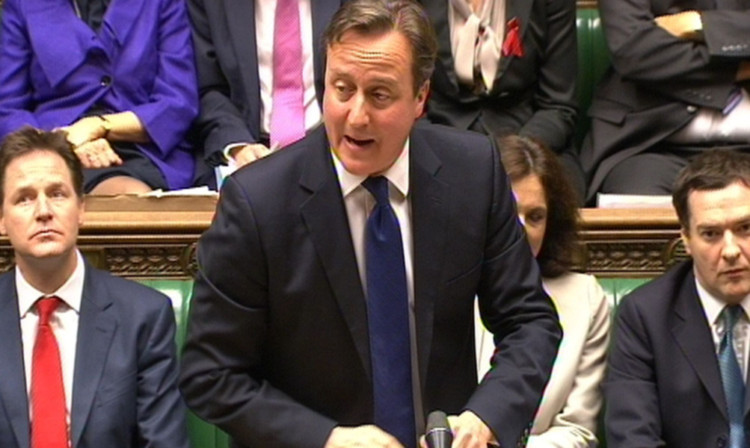A new clampdown on benefits for European Union nationals will send a clear signal to would-be migrants that Britain is not a “soft touch”, David Cameron has said.
Five weeks before Romanian and Bulgarian nationals get new rights to live and work in the UK on January 1, the Prime Minister set out radical plans to overhaul welfare rules, including stopping new arrivals from the EU receiving out-of-work benefits for their first three months in the country.
In an outspoken intervention, European employment commissioner Laszlo Andor labelled the move an “unfortunate over-reaction” and cautioned Mr Cameron not to interfere with rules underpinning the European single market.
And European Commission President Jose Manuel Barroso warned that free movement was a “fundamental” EU principle which “must be upheld”.
Meanwhile, Labour accused the PM of “panicking” in the face of a looming Tory backbench rebellion. Some 45 Conservative MPs have signed up to a Commons motion calling for controls on Romanian and Bulgarian access to the UK to be extended until the end of 2018.
The Prime Minister phoned Mr Barroso on Tuesday to explain his plans before unveiling them in an article in the Financial Times.
After a three-month period without welfare, EU nationals will only be able to claim out-of-work benefits for a maximum of six months unless they can prove they have a genuine prospect of employment, Mr Cameron said.
New migrants will not be able to claim housing benefit immediately.
Those found begging or sleeping rough could be deported and barred from re-entry for 12 months unless they can show they have a proper reason to be in the UK, such as a job.
Elsewhere, firms that pay less than the minimum wage will face fines of up to £20,000 in a bid to prevent undercutting of British workers.
Mr Cameron’s official spokesman said the six-month limit on benefits and tougher residency tests for welfare claimants will be in place by the start of 2014.
But other measures will take longer as they require secondary legislation or new regulations, while tougher fines for breaching minimum wage laws will need primary legislation in Parliament.
In a round of television interviews, Mr Cameron said: “Clearly, you want to send a message to people thinking of coming to the UK (because) we might somehow be a soft touch in terms of benefits, in terms of housing benefit or unemployment benefit.
“I want to send a very clear signal that that is not the case.”
Mr Cameron also demanded wider EU reforms for the future, suggesting labour movement from new member states could be limited until they hit a certain level of GDP per head.
“We need to face the fact that free movement has become a trigger for vast population movements caused by huge disparities in income,” said the Prime Minister.
Mr Cameron is expected to discuss his proposals with European counterparts on the fringes of the EU Eastern Partnership Summit in Lithuania.
